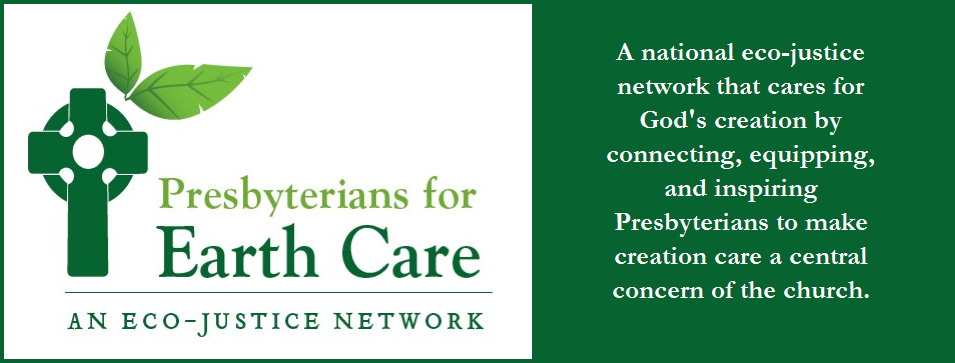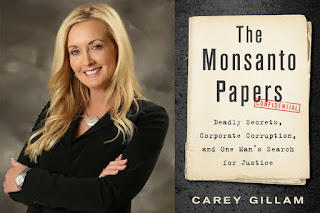Woman of Power, Woman of Grace: FOR CREATION
by Diane Waddell
with Jerry Rees
Jerry Rees and I came to know Carey Gillam through her father
Chuck, a true eco-warrior, a member of Village Presbyterian Church, and a
staunch defender of Earth Care. Chuck had been a faithful and outspoken member
of our Presbytery Earth Care Team for several years and had not mentioned
anything about his amazing daughter. After he humbly told us about her,
our team has followed her work, met with her, shared her work with others, and
has been constantly amazed. Carey exemplifies hard work and self-sacrifice
(at a world-class level) in trying to make the earth safer and less toxic.
It has not been easy. Early on, she worked so hard in her
job with Reuters—uncovering the unfortunate facts about the devastating effects
of glyphosate—that her position was changed by some “powers
that were.”
Nevertheless, she kept pursuing the facts and now is able to
share what the public needs to know to help protect our lives and the
well-being of God’s
Good Green Earth. We bring to you her story (which is far from finished)
and invite you to read her books and follow her current work through US Right to Know, a
not-for-profit food industry research group. Here is the rest of her story…
Carey Gillam is
an investigative journalist and author with more than 30 years of experience
covering food and agricultural policies and practices, including 17 years as a
senior correspondent for Reuters international news service. She has won
several industry awards for her work. Her first book, Whitewash:
The Story of a Weed Killer, Cancer and the Corruption of Science, was
released in October 2017 and won the coveted Rachel Carson Book
Award from the Society of Environmental Journalists, as well as two other
awards.
Carey's second book, a legal thriller titled The
Monsanto Papers - Deadly Secrets, Corporate Corruption, and One Man's Search
for Justice, was released March 2, 2021.
Gillam has been asked to speak all over the world about food and
agricultural matters, including before the European Union Parliament in Brussels, the World Forum for
Democracy in Strasbourg, and to public officials, organizations, and
conferences in the U.S., Canada, Australia, Argentina, France, and The
Netherlands. She has also been an invited lecturer to several universities,
including Emory University, Berkeley Law School, Washington University, the
University of Chicago Booth School of Business, the University of Iowa, the
Cambridge Forum in Harvard Square, and others.
She has served as a consultant on, and participant in, several documentaries, including the award-winning Poisoning Paradise, released in June 2019 by actor Pierce Brosnan and his wife Keely Brosnan. A new documentary based on Carey’s books Into the Weeds will have its U.S. release on Earth Day in April.
Gillam writes regularly for The Guardian. Her work
has also been published in The New York Times, Huffington Post, Time,
and other outlets.
In May of 2022, Gillam helped launch a non-profit environmental
news outlet called The New Lede as a journalism
initiative of the Environmental Working Group.
You can receive updates on Gillam’s work by subscribing to
her free Substack called UnSpun.
Gillam speaks to issues of food safety and security,
environmental health, agricultural issues, corporate corruption of regulatory
policies, as well matters about journalism, fake news, corporate pressure on
media, and more.
Carey, we appreciate you greatly and thank you for pursuing
justice for earth and her inhabitants.
Diane Waddell and Jerry Rees are members of Earthkeepers of
Heartland Presbytery. Jerry is a member of Village Presbyterian Church,
which hosts Earthkeepers meetings.



